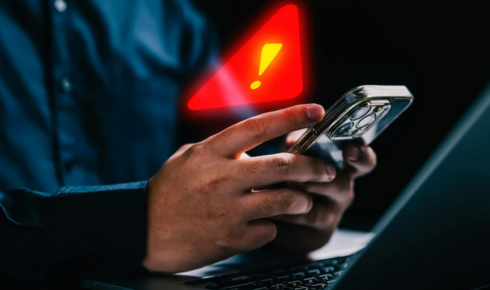It starts with a message. A random email or WhatsApp ping. “Congratulations! You’ve won the Powerball jackpot! Click this link to claim your prize.” Your heart skips a beat. Could it be true? You didn’t even buy a ticket this week, but the message looks official. There’s a logo. There’s fine print. Heck, they even know your name.
And that, my friend, is where the scam begins.
In this digital age, playing the lottery — especially something as massive and well-known as has moved beyond the corner store ticket booth. Now you can play online, track results on apps, and even automate your entries. But with that convenience comes risk. Scammers have found clever ways to impersonate lottery platforms and prey on unsuspecting dreamers.
If you’ve ever wondered whether a Powerball site or message is legit, this article’s for you. Let’s talk about what these scams look like, how to sniff them out, and how to keep your money (and identity) out of the wrong hands.
The Rise of Powerball Scams
It’s no secret — wherever there’s hope, there’s usually someone trying to exploit it. The promise of a life-changing jackpot creates the perfect setup for scammers. They don’t need much: just an email, a fake page, and a little manipulation. And before you know it, someone’s wired $500 to “unlock” a $10 million prize that never existed.
Some of the most common scams include:
- Fake winning notifications
- Imposter websites mimicking official Powerball portals
- Requests for fees or personal banking details
- “Exclusive systems” that guarantee a win (for a price)
A quick reality check: no legitimate lottery will ask you for money to claim money. Ever.
Signs You’re Dealing with a Scam
Let’s break it down in plain English. If you’re staring at an email or website and something feels… off? Trust your gut. Still unsure? Look out for these red flags:
- They contacted you first — Real Powerball winnings require a ticket purchase. If you didn’t enter, you can’t win. Simple math.
- They ask for money upfront — Whether it’s “processing fees,” “customs clearance,” or some vague “tax,” you should never pay a cent to receive lottery winnings.
- Bad grammar, strange URLs, or mismatched branding — Scam sites often have typos, weird-looking links, and logos that don’t quite line up. They try to look official but usually miss the mark.
- Urgency or pressure tactics — Scammers want you to act before you think. They’ll say things like “Respond within 24 hours or forfeit your prize.” Real lottery officials? They don’t work that way.
If you’re playing via an online, it’s crucial that you use platforms with proper licensing, secure payment methods, and real customer support—not just a sketchy contact form buried in a shady site.
Protecting Yourself: Do’s and Don’ts
DO stick to well-known, reviewed sites. Some international platforms partner with official lottery retailers and are completely legit — but do your homework first.
DON’T share personal info like your Social Security number, passport details, or banking credentials with unverified sources. It might seem obvious, but these scams are designed to disarm your skepticism.
DO cross-check claims. If someone says you won the 동행복권 파워볼, go directly to the official website or retailer where you bought your ticket. Never rely on third-party links in emails or texts.
DON’T pay to claim a prize. Legitimate lotteries deduct taxes at the source or provide guidance via official, secure channels. There’s no scenario where you have to “wire” cash to prove your identity.
And perhaps the most underrated tip: talk to someone. If you’re unsure about a message or site, run it by a friend, family member, or even an online community. A second set of eyes can make all the difference.
Real vs. Fake: A Side-by-Side Glance
Let’s say you’re on a site that looks… almost right. You’re seeing ticket options, recent draw numbers, even testimonials. But something’s nagging you.
Here’s how to tell a real Powerball platform from a fraud:
| Feature | Legitimate Site | Scam Site |
| URL | HTTPS, official domain (.gov or trusted .com) | Random, long strings or unusual domains |
| Payment | Secure gateways like Stripe or PayPal | Wire transfers, crypto-only, or gift cards |
| Support | Live chat, clear FAQs, terms & policies | Generic forms, no response, or shady contact info |
| Transparency | Clear rules, draw history, licensing | Vague promises, no licensing info |
If you’re still unsure, type the site’s name into Google with the word “scam” next to it. You’d be surprised how quickly red flags pop up when others have already been burned.
Wrapping It Up (Without Sugarcoating)
There’s nothing wrong with chasing the Powerball dream. Millions do it every week, and some of them walk away with life-changing jackpots. But the digital side of that dream comes with fine print: if it seems too good to be true, it usually is.
Stay smart. Stay cautious. And remember: you can enjoy the thrill of without falling for the wolves dressed in winning emails.

